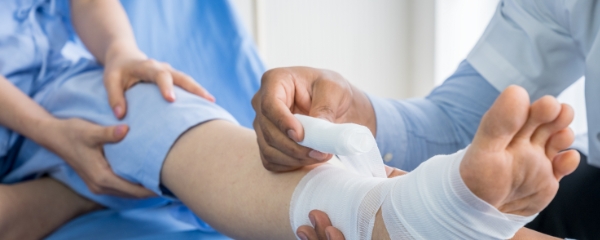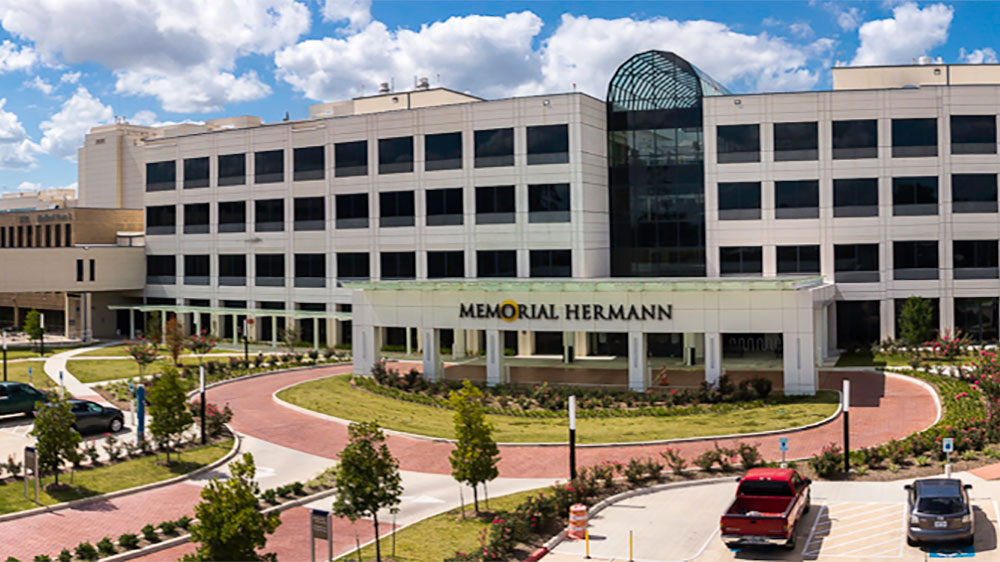
Amputation Prevention Center and Wound Care
Comprehensive Wound Care
Memorial Hermann Wound Care provides specialized care to those suffering from chronic wounds in a coordinated outpatient center utilizing the latest techniques and procedures. As a comprehensive wound healing center, we specialize in the treatment of all chronic, non-healing wounds including:
- Diabetic foot ulcers
- Venous ulcers
- Pressure ulcers
- Non-healing, surgical wounds
- Arterial/ischemic ulcers
- Post-radiation ulcers
- Traumatic wounds
- Infected wounds
- Crush injuries
- Compromised flaps or grafts
Our approach to wound care is aggressive and comprehensive, combining traditional and advanced therapies and techniques that are proven to reduce healing time and improve healing rates. Since non-healing wounds rarely result from a single cause, we begin with a thorough evaluation and diagnostic testing to determine the underlying cause of the wound. An individualized treatment plan is then developed to give patients the best chance of healing. Depending on the type of wound, the treatment plan may include:
- Infection control
- Restoration of blood flow
- Debridement (removal of dead tissue)
- Offloading
- Hyperbaric oxygen (HBO) therapy
- Skin substitutes
- Compression therapy
- Foot reconstruction
- Skin graft or flap
Memorial Hermann Wound Care is staffed with a multidisciplinary team of affiliated physicians, along with nurses and technicians with advanced training in wound care, who will customize and coordinate the most effective treatment plan to stimulate healing so you can recover as quickly and completely as possible.
Amputation Prevention Center
The Amputation Prevention Centers at Memorial Hermann are surgically focused inpatient and outpatient programs within Wound Care, designed specifically for patients with limb-threatening conditions, such as diabetic foot ulcers/infections and peripheral arterial disease. Diabetic foot complications are among the most complex to treat and require a coordinated, organized approach from a team of specialists with advanced training.
Our goal at the Amputation Prevention Center is to prevent lower extremity amputations and time is of the essence when trying to save your limb. Any time you have a sore or wound on your lower extremity that concerns you, or if you experience any of the below symptoms, talk to your physician or contact our Amputation Prevention Center for an evaluation.*
- A foot or leg ulcer that is red and/or swollen
- An ulcer or skin surrounding an ulcer that has turned black
- A leg or foot ulcer and you have had a previous major or minor lower limb amputation
If you have any of the above symptoms and develop a fever or flu-like symptoms, you should go to the emergency room and then contact the Amputation Prevention Center for a follow-up appointment.*
*Some insurance providers may require a physician order. Our team can assist you to determine if an order is needed.
How Does a Chronic Wound Lead to Amputation?
Lower extremity amputation is an unfortunate and often avoidable complication of diabetes. A majority of lower limb amputations are due to foot ulcers that are a result of complications from diabetes, including:
- Neuropathy – loss of feeling in your feet
- Poor circulation
- Charcot foot – a deformity that forms in some patients with diabetes
- Gangrene
- Infections
- Repetitive trauma – from ill-fitting shoes that cause redness, blisters and eventually sores
Ulcers develop in up to 25% of those with diabetes over their lifetime. The longer an ulcer remains open and unhealed, the more likely it is to become infected. Foot ulcers complicated by infection are often what leads to an amputation. Lower extremity amputation is an unfortunate but often avoidable complication of diabetes.
Amputation Prevention Center Care Specialists
The Amputation Prevention Center is led by a team consisting of affiliated surgical podiatrists and endovascular specialists (vascular surgery, interventional radiology, and/or interventional cardiology) with advanced training in procedures to save patients from major amputations.
This specialized team allows for rapid vascular and podiatric opinions regarding the aggressive treatment of infections, response to emergencies, and performance of urgent investigations and wound debridement.

